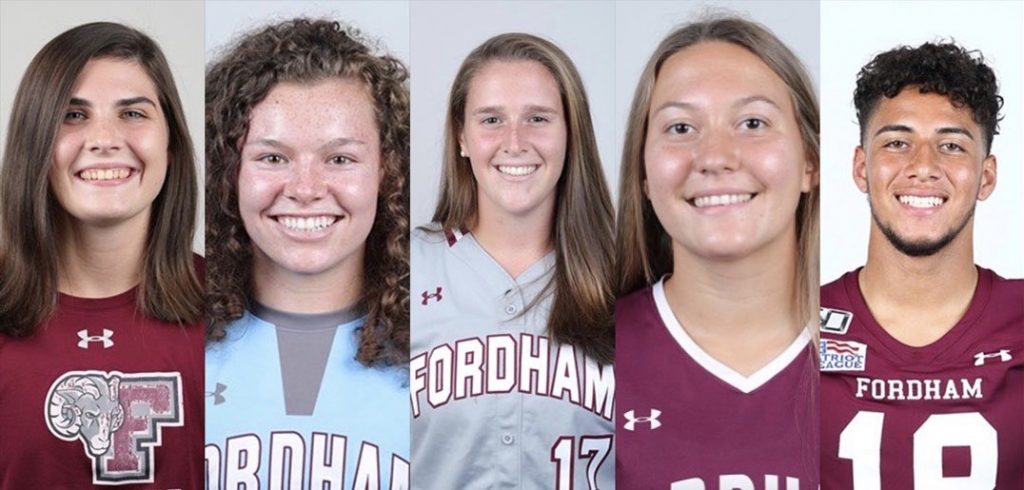“This panel is, of course, a way to close out Pride Month for Fordham Athletics,” student panel moderator Gigi Speer said to more than 40 students, coaching staff, and administrators over Zoom on June 30. “But what it really is is a launching pad for change.”
Coming Out to the Football Team
Jaden Vazquez, a rising senior on the football team, said he didn’t tell his teammates he was bisexual until his sophomore year. Vazquez said when his coach told the whole team that he didn’t care about anyone’s religion, race, or sexual orientation, he felt seen and safe.
“Even if you think that there’s no one [in the LGBTQ+ community]on your team, addressing that as your stance goes a long way,” said Vazquez, adding that his teammates and coaching staff immediately accepted him.
There are many supportive athletes at Fordham, said Vazquez and the panelists, but that isn’t always the case.
“I’ve chosen to surround myself with the people who accept me,” said goalkeeper Maggie Grossman, adding that her teammates and coaching staff have shown her only love and support. “But the second I venture out of the bubble, I’m still different.”
Fordham Athletics: Building a More Inclusive Community
One of the first steps towards inclusivity is gender-neutral language, said the panelists. The women’s soccer team was given the option to add their gender pronouns to their online sports biographies, said Grossman, who uses she/her/hers pronouns.
In addition, administrators can create more rules that make everyone feel included, especially trans athletes, said Grossman. In the weight room, coaches can address students as “athletes” instead of “ladies” or “men.” In the office, paperwork can include more gender options besides “female” or “male,” Grossman said.
Fordham Athletics can also promote more LGBTQ+ resources, including the student-athlete support network Fordham Connect, said Hanna Decker, a rising senior on the rowing team.
“I definitely struggled with my identity for a long time and often felt alone. It wasn’t until this past year through Connect, mainly, and my own active searching that I was able to find a community of other athletes with shared experiences. That’s been a huge plus for me and changed my overall experience at Fordham for the better,” Decker said.
Fordham can also attract more diverse athletes during recruiting trips by highlighting LGBTQ+ resources available at the University, said Grossman.
“You might have an athlete that’s in the closet. That’s the perfect way to be like, we accept you,” Grossman said.
The Ability to Change an Athlete’s Life
Ultimately, a coach shapes their team’s culture, said Marissa Krenn, a rising sophomore on the women’s soccer team. And they’re not the only ones who share that responsibility, said Rachel Hubertus, a graduate student on the softball team.
“What Fordham Athletics needs begins [with]our leaders,” Hubertus said, referring to coaches, administrators, student captains, and upperclassmen. “And I think it will just trickle down in terms of culture.”
In a nutshell, coaches can create a positive environment by educating their team on LGBTQ+ issues, voicing acceptance, maintaining open-ended conversations, and recognizing that they have an impact on the future of many LGBTQ+ athletes, said the panelists.
“The first person I came out to was my club soccer coach because I knew that she was accepting, and I felt comfortable talking to her,” Grossman said. “I think that it’s important for everyone to recognize how much power they have to change someone’s life.”
This past year, Fordham Athletics released a social justice plan designed to create a more inclusive community. The department released a winter report in January and a summer report this July.

